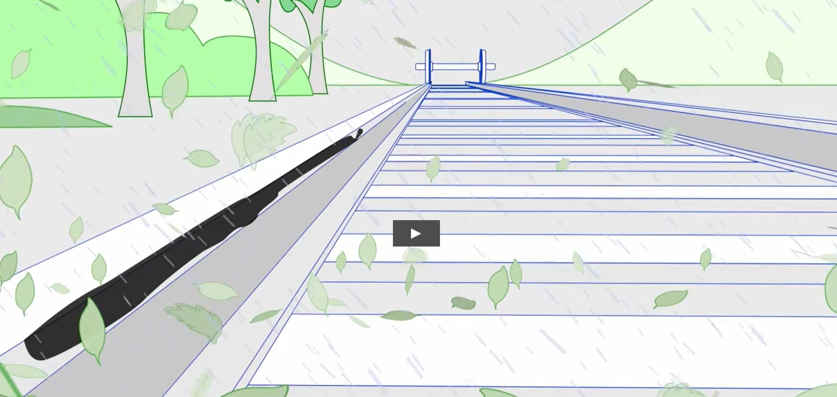UKRRIN members RSSB and the University of Sheffield are collaborating to develop a tool using Artificial Intelligence to predict low adhesion conditions.
Low adhesion costs GB rail in the order of £350 million each year. The causes of low adhesion have been the subject of much research over the years. This initiative further explores how a deeper understanding of local conditions can be used to tackle the seasonal challenge associated with ‘leaves on the line’.
Adhesion between the wheel and the rail varies significantly according to local conditions such as temperature, humidity and the presence of leaf layers or other contaminants. Our goal is to combine local data, including high-resolution video, to deliver more accurate and granular predictions about friction at the wheel-rail interface, and potentially longer-range predictions.

Click this link to watch the video
Better estimations of local adhesion conditions could be used to plan for efficient and effective railhead cleaning schedules or could be used by route controllers to support operational decision making. Performance teams could use the information to establish stronger links between low adhesion and delay minutes, which could deliver insights into train braking and performance models.
This work builds on the output of an earlier project, which proved the hypothesis that friction conditions on the rail head can be estimated using images of the surroundings, images of the rail head and other sensor data. The follow-on project is using high-resolution video footage captured from cameras mounted on passenger trains to build the algorithm and enhance the tool’s predictive capabilities.
One of the project outputs will be an online demonstrator, for users to enter data that will generate friction predictions for anywhere on the network, in time for Autumn 2023.
For more information or to express interest in using the demonstrator when it is available contact: Melissa.Frewin@RSSB.co.uk
This project is part of ADHERE, the cross-industry adhesion research programme. The programme sets out to deliver research to achieve ‘adhesion conditions that are unaffected by and independent of the weather and climate’. The work will address industry’s gaps in knowledge with new insight that helps improve how we manage low adhesion.

